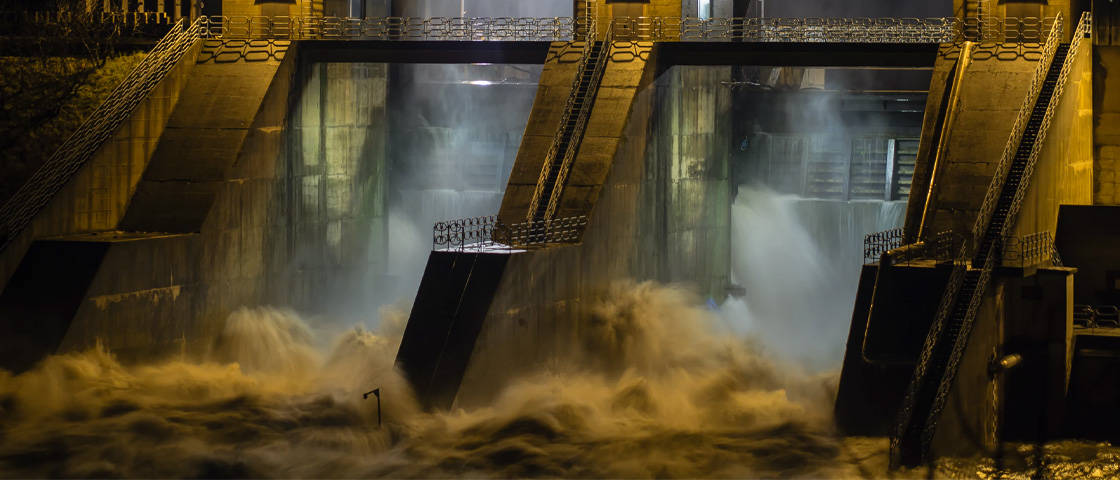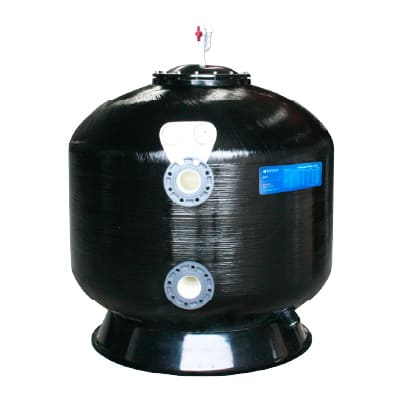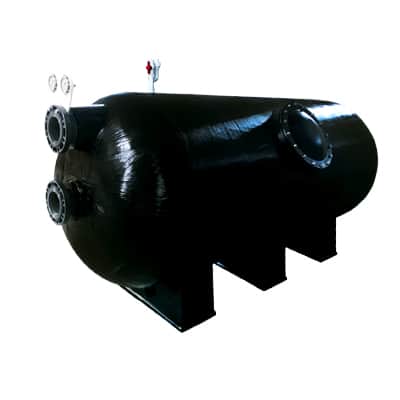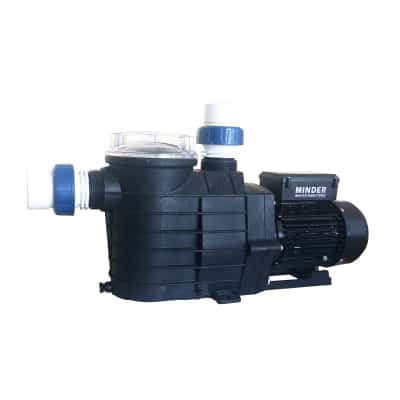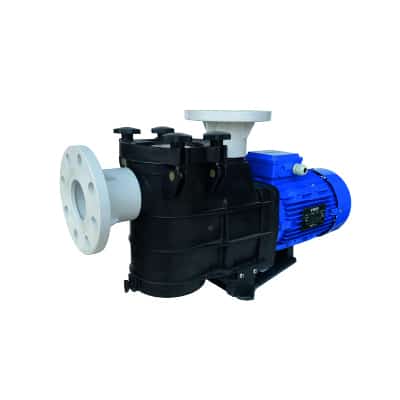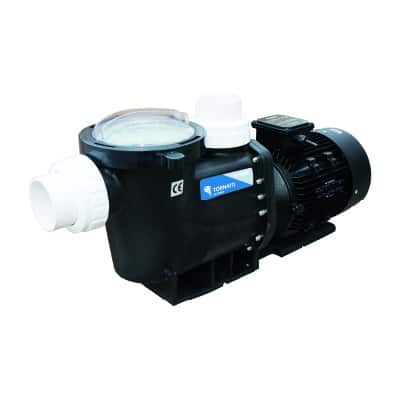Process Water Treatment
Process water is broadly defined as water used in industry, manufacturing processes, power generation and similar applications.
The specific process water requirements of various industries and plants vary enormously. Water is therefore produced using a variety of process water technologies depending on the feed water and final water quality and volume requirements.
Industrial water treatment is needed since if unclean water is utilized in the production process then the unwanted substances can have a negative affect product quality. And if water is used in production processes, impurities can directly affect product quality.
The primary goal of industrial water treatment is to avoid the occurrence of scaling, biological contamination and corrosion and to guarantee that water disposal standards are maintained as well as reducing solids such as waste product, organic materials and sand, the overall system is capable of failing when there is an imbalance amongst industrial water treatment processes with vital components being susceptible to corrosion due to scaling conditions.
Some common ways to reduce solids include primary filtration, sedimentation (clarification) and screening, when onsite treatment equipment is needed, Minder offer industry-leading filtration system solutions to solve many of your most challenging wastewater issues.
MINDER’s pre-treatment equipment can reduce loads on your process water treatment processes, lower or prevent sewer surcharge fees and improve water reuse.
Process Water Uses
Here are just few examples of industrial process water use:
- Pharmaceutical and cosmetics industries: process water is required that continuously meets stringent regulatory requirements
- Food and beverage industries: flexible water purification and contaminant removal systems support the need for ingredient water
- Chemical and petrochemical industries: process water is used for cooling tower systems, makeup water and blowdown treatment systems
- Automotive industry: vehicle production plants have a significant demand for process water of known quality

Drinking Water Treatment
Drinking water has a strict requirement on the water quality, different countries and organizations make different requests.
Municipalities need to provide reliable, high quality drinking water in an increasingly challenging environment while operating effectively and efficiently. One way to efficiently do this is through drinking water treatment plants and systems.
In general, drinking water must be treated to remove every possible suspended solid, other impurities, bacteria, etc.
MINDER’s media filters are designed with coarse media layers to trap larger suspended matter and hold smaller particles in the layers of media found deeper in the bed. The outcome is highly capable filtering since removal occurs throughout the entire bed. The usual number of particles eliminated from multi-media filters are between 5 to 15 microns in size or even larger. Every media used within our filters are specifically chosen according to the size of the particles for the media to retain its stratification during rinse and backwash. Automatic backwashing system eliminates trapped pollutants within the media bed and filters them out at the end of the process.
Sediment filters remove suspended matter such as silt, sand, clay, loose scale, and organic substances from water sources. Untreated water is directed through a filter medium, which keeps suspended matter on the surface or within the filter.
Cooling towers
Cooling Towers act in a similar way to air scrubbers by collecting all particles from the surrounding environment into the cooling water. These particles, such as dust, sand, algae and pollen easily attach to hot surfaces during circulation inside the cooling system and cause clogging, fouling and reduction in efficiency of the process, which results in the shutdown of the system for cleaning. Efficient filtration is very important for maintaining the continuous operation of the cooling system.
By using MINDER’s filters in your HVAC (Heating, Ventilating and Air Conditioning) or cooling tower water treatment systems, either as side stream or full flow applications, you will avoid all these problems.
By filtering the cooling water, you will also decrease chemical material consumption for water conditioning. (chlorine, biocides, algaecides, etc) as well as eliminating corrosion, deposition, fouling, and biological growth.
Pre-treatment for Reverse Osmosis (Desalination)
Seawater covers 71% of the planet surface and represents 97% of the world’s water.
MINDER’s solutions deliver a reliable supply of fresh water from virtually any saltwater source such as seawater or brackish water.
Tackling seawater desalination requires careful testing early in the project lifecycle. MINDER’s solutions start with pre-treatment components that protect membrane desalination systems by removing suspended solids and impurities. After careful analysis of your source water and conservation needs. MINDER’S depth filters offer superior SDI reduction, lower pressure drop with greater dirt holding capacity and up to twice the life of conventional depth filters.
Here are some of the key benefits provided by water pre-treatment:
- Extends the life of subsequent reverse osmosis (RO) plant membranes
- Ensures that the water delivered to the RO or EDI (electrode ionisation) system meets the required quality standard
- Supports the delivery of a continuous and dependable water supply
- Maximises the overall water processing plant lifecycle, thus reducing costs

- Municipal water tank: Solve the instability problem of tap water pressure and reduce the mechanical failure.
- Quartz sand filter: Tap water, running from upper of tank, is separated from the filter layer by the lower water distributor, forming filtered water.
- Activated carbon filter: After activated carbon adsorption, the residual chlorine of tap water can generally be reduced to below 0.1mg/l.
- Precision filter: Mainly use of 5us melt blown filter core, can remove fine particles.
- High pressure pump: To provide the required power for reverse osmosis operation.
- Reverse osmosis system: Play the core component of reverse osmosis pure water equipment.
- Pure water tank: used for storage of pure wate
Ground Water Treatment
Underground water treatment equipment is commonly known as well water treatment, is mainly removal of iron and manganese, by aeration and filtration, filtration medium is commonly used quartz sand, manganese sand, followed by active carbon and precision filters to proceed filtration, after treatment, the water quality can meet the national standard for drinking water. And ammonia nitrogen mostly adopts by ultrafiltration or reverse osmosis filtration process, sediment and incrusting can be used in multi-media filtration and ion exchange softening device to proceed filtration.
Filtration plays an important role in the natural treatment of groundwater as it percolates through the soil. It is also a major part of most water treatment. Groundwater that has been softened, or treated through iron and manganese oxidation, requires filtration to remove floc created by coagulation or oxidation processes. Since surface water is subject to run-off and does not undergo natural filtration, it must be filtered to remove particles and impurities.
Ion Exchange
Hardness in water is caused by certain salts. The main hardness causing ions are Calcium (Ca2+), Magnesium (Mg2+) and Bicarbonate (HCO3–).
These ions or minerals are normally addressed as scale in the water causing scaling of pipes and equipment in drinking water and process water systems.
Softening units offer a water purification solution for hard water and lime scale removal. In many applications, e.g. the preparation of drinking water, water in breweries and sodas, but also cooling water and boiler feed water, the hardness of the water is of importance.
MINDER offers ion exchange water filters and related equipment for households, laboratories and industrial applications.
A typical water filter contains a long column, filled with beads of a polymer resin. The small beads mean there is a large surface area in contact with the water as it flows past.
In the case of a calcium exchange filter, the resin is made of a polymer that binds positively charged ions. The polymer is designed to bind to calcium and magnesium more strongly than to sodium. Initially, the polymer is saturated with sodium ions, meaning that there are sodium ions at the surface of each bead available to be exchanged.
When hard water flows past this resin, the calcium and magnesium ions will bind to the polymer, displacing the sodium into the water. The water flowing out is then softer but contains more sodium instead.
After water passes through the ion exchange resins, it passes through a final filter stage made of activated carbon. This absorbs other contaminants from the water – including chlorine and organic compounds, that affect the taste of the water – but doesn’t change the mineral content.
What does ion exchange remove?
- Hardness removal (water softener)
- Nitrates
- Alkalinity
- Chloride removal
- Sulfates
- Fluorides
- Organics reduction
- Silica removal
- Perchlorate
- Radium and Uranium removal
- Arsenic removal
- Barium removal
- Boron removal
- TDS reduction
Wastewater Treatment
Biological wastewater treatment processes are primarily designed for the removal of dissolved and suspended organic matter from wastewaters. The environmental conditions are optimised to encourage growth of the micro-organisms which use the organic compounds as substrate.
Biological wastewater treatment is also capable of removing other wastewater components, including suspended solids, nitrogen, phosphorus, heavy metals and xenobiotics.
In general the biological wastewater treatment is the most efficient and economical way of removing organic pollution from a wastewater



